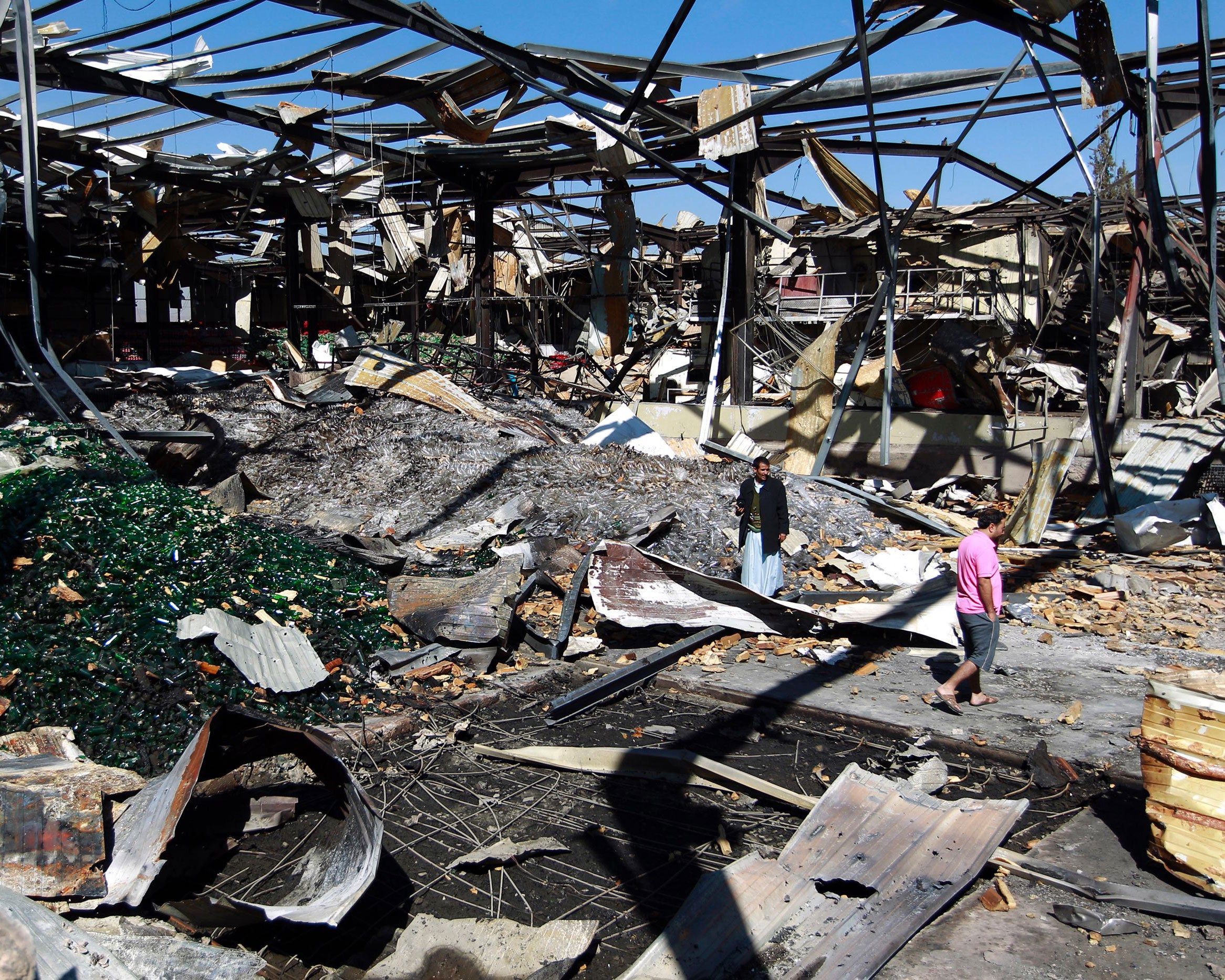Attacks on hospitals mean people in Yemen are now too scared to go for treatment, MSF says
The international humanitarian-aid charity says hospitals have become 'targets' in ongoing conflict

Your support helps us to tell the story
From reproductive rights to climate change to Big Tech, The Independent is on the ground when the story is developing. Whether it's investigating the financials of Elon Musk's pro-Trump PAC or producing our latest documentary, 'The A Word', which shines a light on the American women fighting for reproductive rights, we know how important it is to parse out the facts from the messaging.
At such a critical moment in US history, we need reporters on the ground. Your donation allows us to keep sending journalists to speak to both sides of the story.
The Independent is trusted by Americans across the entire political spectrum. And unlike many other quality news outlets, we choose not to lock Americans out of our reporting and analysis with paywalls. We believe quality journalism should be available to everyone, paid for by those who can afford it.
Your support makes all the difference.People in Yemen have stopped going to hospitals because they are being seen as “targets”, a charity has claimed.
Médecins Sans Frontières (MSF) said the latest bombing of the Shiara hospital in Saada, which killed six and injured seven, was part of a “worrying pattern of attacks to essential medical services”.
Juan Prieto, general coordinator for MSF’s projects in Yemen, said more than 100 incidents involving hospitals meant people were scared to visit them for all but the most serious emergencies.
“Medical facilities that should be places of healing for the population, no longer seem to be safe for the patients or for the medical staff operating in them,” he said.
“People still consider hospitals a target and try to avoid them as much as possible. The only cases that we are receiving are emergencies and mass casualties following attacks.”
MSF health workers returned to work at Shiara hospital as soon as it was confirmed the attack was over, Mr Prieto said, in spite of the fact that it has been hit by missiles or air strikes three times in the last year alone.
Staff and patients alike feel “uneasy and threatened” because of the failure to protect medical facilities from the ravages of war, he said.
“Nevertheless, our staff have returned to their positions albeit apprehensively. They are more determined than ever, given the situation in the country and the specific needs in Razeh, to continue working for the population.”
David Cameron defended Britain’s support for Saudi Arabia in its country’s widely-criticised Yemen campaign on Monday. He said: “We’re trying to do everything we can to make sure that the work done by Saudi Arabia is properly targeted and it’s right that we should do that.”
Yet even as he spoke on BBC Radio 4’s Today programme, reports were coming in that Saudi-led air raids had struck a group of civilian police buildings in Sana’a.
At least 15 police officers were killed and more than 20 were wounded, according to local medics and residents. The facility was sometimes used as a meeting place for the opposition Houthi militia which currently controls the country’s capital, and the strike highlights the challenge of correctly identifying targets for international air raids.
The fighting in Yemen has killed more than 5,800 people since last March when the Saudi-led coalition began the air campaign.
Join our commenting forum
Join thought-provoking conversations, follow other Independent readers and see their replies
Comments